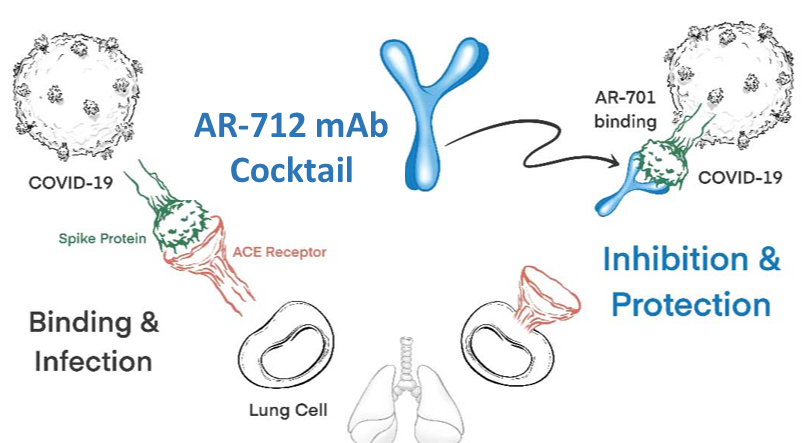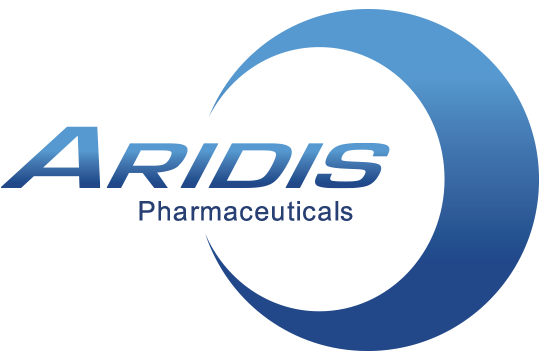
AR-712 (COVID-19 mAb)
Human monoclonal Antibody to SARS-CoV-2 Virus
AR-712 is a cocktail of two fully human immunoglobulin 1, or IgG1, monoclonal antibodies discovered from screening the antibody secreting B-cells of convalescent COVID-19 patients. The AR-712 cocktail is comprised of AR-711 and AR-720 mAbs. AR-712 is being developed as an inhaled, self-administered treatment for non-hospitalized patients suffering from mild to moderate COVID-19. AR-712 is directed against the conserved receptor-binding domain (RBD) regions of the original SARS-CoV2 virus and its newly emerging variants. AR-712 is engineered to be long-acting in blood for up to six to twelve months.
AR-711 is shown to be effective in prophylactic as well as therapeutic treatment modes in a SARS-CoV-2 viral challenge study. In the animal challenge study, golden Syrian hamsters were pre-infected with SARS-CoV-2 before a single inhalation exposure of AR-711 liquid aerosols. AR-711 eliminated detectable SARS-CoV-2 virus at all dose levels tested, with the lowest lung deposited dose of 0.01 mg/kg. The scientific publication can be found here.
AR-713 extends the binding and neutralization of SARS-CoV-2 strains to include the ‘E484K’ mutation related strains, which include the Brazilian and Japanese variants (P.1) and the South African variant (B.1.351). Binding analyses projects that AR-712 will bind and neutralize all SARS-COV2 strains listed in the US CDC’s Variant of Interest and Variant of Concern lists, including the Delta strain, the Delta Plus strain, and the Lambda strain.
AR-712 is stabilized using a proprietary formulation designed to protect the mAb from the physical stresses imparted by commercial nebulizer delivery devices on protein drugs.
An inhalable treatment that can be self-administered using a wide variety of commercially available nebulizers can facilitate broader coverage in non-hospitalized settings and at a scale not achievable using conventional inpatient IV infusion treatments.



